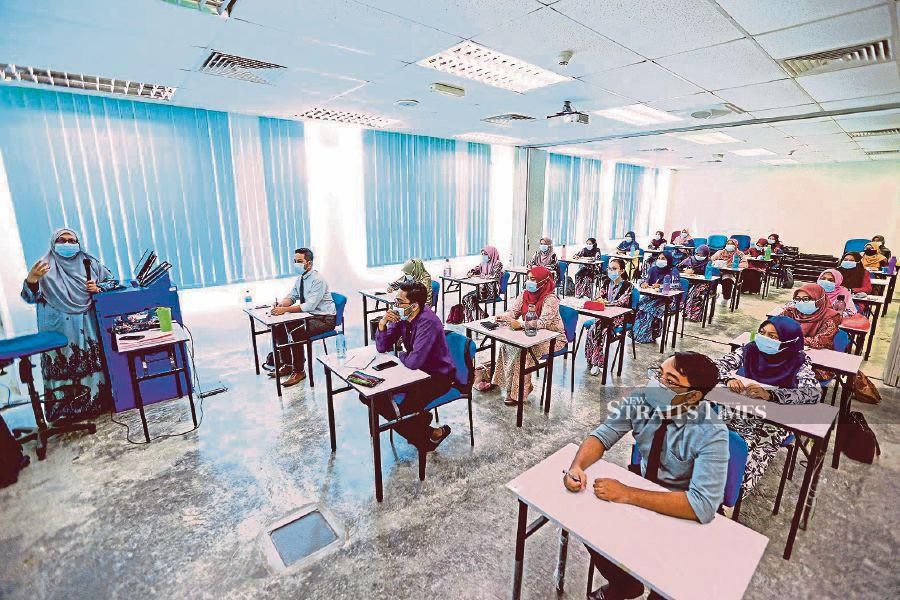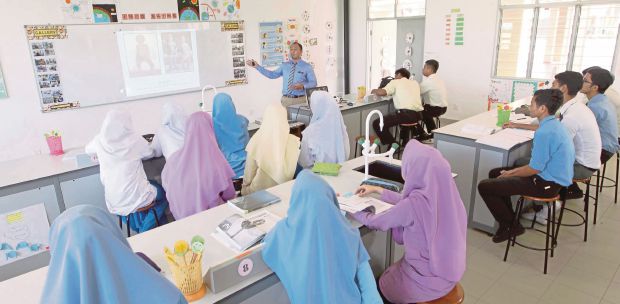RECENTLY, I had a chat with a student. He complained about the restriction on students' movement his university imposed for Covid-19 reasons.
I asked him how his dormitory life was. "Boring."
"How are you spending your time at the dormitory?" "Lazing around and gossiping with friends."
"Study?" He gave me a look of surprise. Since it was semester break, he did not anticipate my mention of "study", hence, he registered a shocked reaction to it.
He is not alone. There are innumerable students who regard education as a duty to be performed under duress and during semesters, lacking enthusiasm for learning, or intrinsic motivation for exploring the realm of knowledge.
In department meetings or academic forums, it is not uncommon to hear lecturers expressing frustration about students' poor performance, attitude and lack of interest in studies.
However, is it always the fault of the students? Are they really deficient? Shall we blame them only if they study with the single goal of obtaining a degree? Shall we continue finding fault with them if their graduation from a university marks the end of their relationship with learning? The list can go on and on, but should not be ignored.
Teaching is a challenge, requiring academics to have an extensive understanding of their subjects and techniques to deal with students. When handling students with negative attitudes, it is hard to stay positive.
Many academics burn out due to having too much work on their plate: teaching, marking, researching, writing, publishing and many more. Family background, prevailing youth culture, sociocultural environment and education system play a key role in shaping students' mindsets.
However, I believe that educators should do some introspection. Do they have enough commitment to teaching and enhancing students' learning experience? Are some of them caught in a wrong profession?
A 2013 report by the Publications Office of the European Union states: "The teaching mission should appear as a resounding priority throughout every institution … not just worthy words in a mission statement…. [R]esearch shows that serious commitment to best practice in the delivery of this core teaching mission is not universal, is sporadic at best and frequently reliant on the enlightened commitment of a few individuals" (p. 13).
An expert committee made this observation about Europe's higher education institutions (which are known for their academic excellence). Universities in South and Southeast Asia can be downright pathetic in their ability to train students.
Here the number of "committed individuals" is perhaps much lower. Lecturers who are not passionate about teaching and enter this profession not for the love of knowledge, but for livelihood or status, may not enjoy it and may also negatively impact students' learning experience.
Teaching enables educators to share knowledge with students who will hopefully acknowledge and return the act in the form of commitment and devotion to learning.
For example, I teach Islamic Literature in English at International Islamic University Malaysia. How many authors and texts can I cover while teaching this module in a 14-week semester when my students have other courses to study?
Time will not allow me to introduce my students to important works of all major writers of this literary tradition. However, if I can generate interest among them to know more, they will be motivated to lifelong learning and continue exploring this subject.
They will try to learn more Islamic literary texts whenever an opportunity arises to do so. In Excellence without a Soul: How a Great University Forgot Education (2006), Harvard academic Harry R. Lewis criticises the propensity of using a semester to cram students with knowledge and information.
He observes: "Yet professors sometimes treat a course like a tube of toothpaste:they squeeze out a little bit of material every day … [and] try to ensure that the tube is empty at the end of the term, clenching the tube in both fists during the last week if necessary" (p. 81).
Lecturers' focus should not only ensure the students are provided with course content they need to pass exams, but also to help them develop the hunger and thirst for knowledge and provide them with inspirational motivation and intellectual stimulation.
Only inspirational teachers can light candles in the darkest minds of under-motivated students and rekindle the minds of those who are already motivated.
With love, compassion, patience and forgiveness, educators should help students discover their potential and work hard to actualise them.
Motivate students to learn more. Herein lies their success.
The writer is with the Department of English Language and Literature, International Islamic University Malaysia and can be reached at [email protected]





